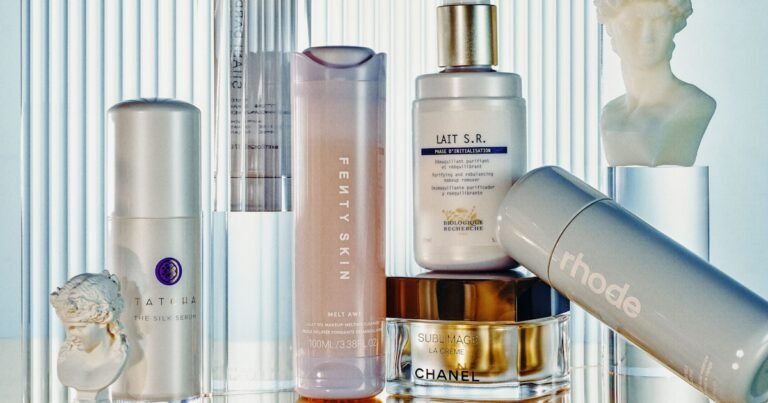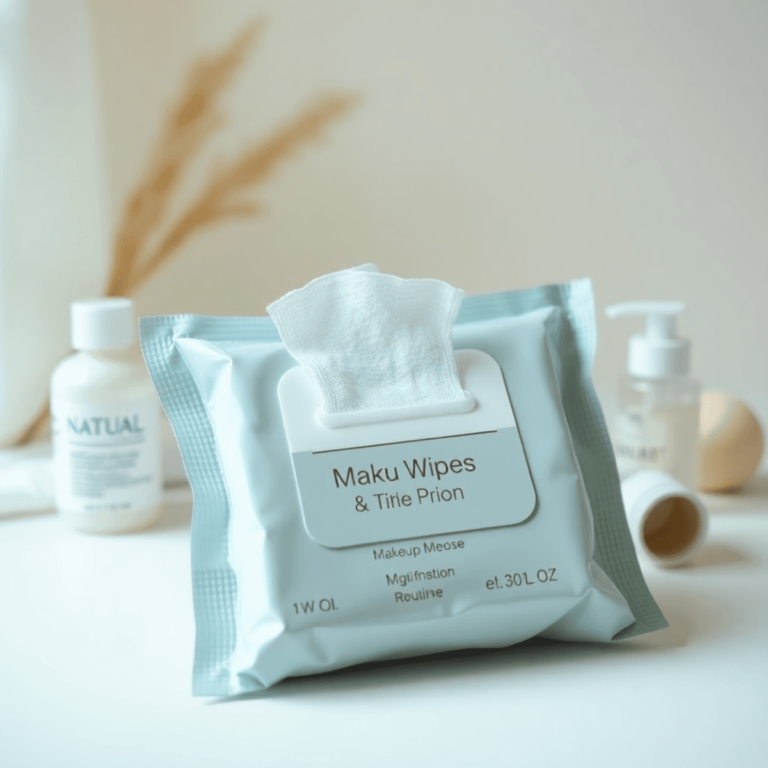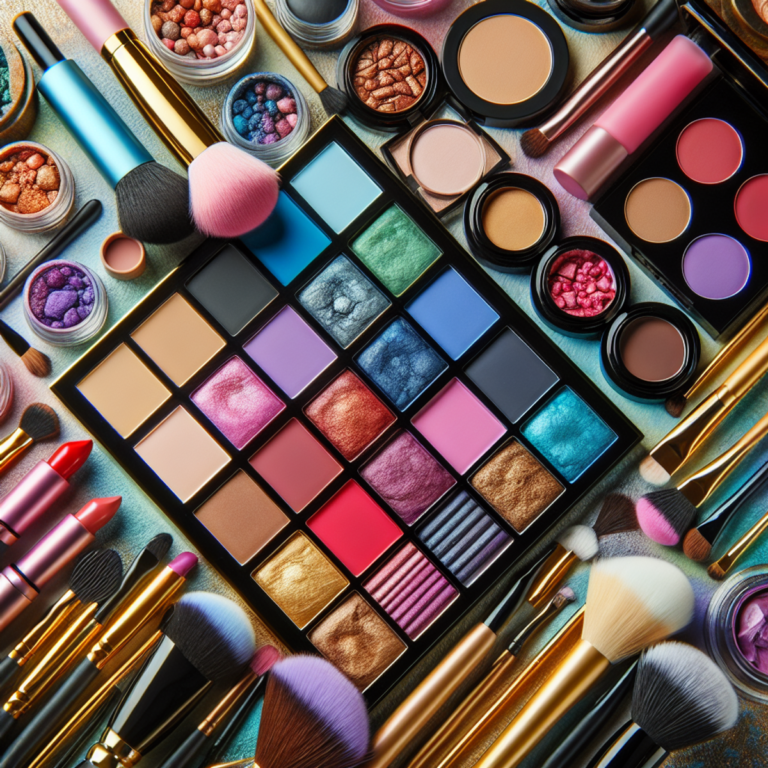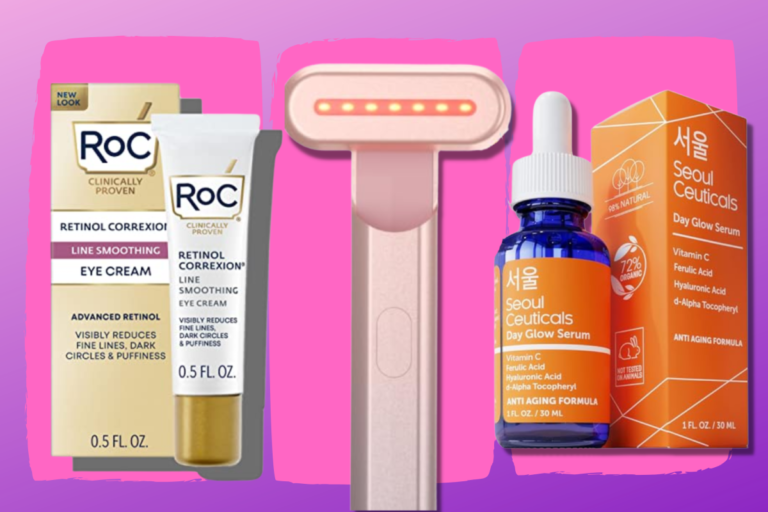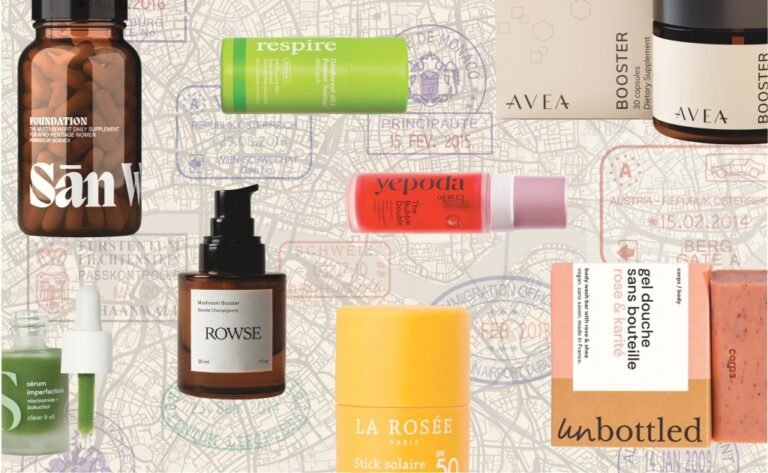A Men’s Skincare Routine: The Ultimate Guide

Introduction
Skincare is not just for women; it’s equally important for men to maintain healthy and radiant skin. In this ultimate guide, we will explore the essential steps and products for a complete men’s skincare routine. Whether you’re new to skincare or want to improve your current routine, this guide will give you valuable information to help you reach your skincare goals.
Why Skincare Matters for Men
- Discussing the societal shift towards inclusive skincare practices
- Emphasizing the impact of proper skincare on overall health and confidence
What You’ll Learn in This Guide
- Providing an overview of the topics covered in this comprehensive guide
- Getting ready for a journey towards achieving an effective men’s skincare routine
Understanding Men’s Skin
When it comes to skincare, it’s important to know what makes men’s skin different. Understanding these differences can help you create a skincare routine that works for you.
Characteristics of Men’s Skin
Here are some key ways that men’s skin is different from women’s:
- Men tend to have thicker and oilier skin because of higher levels of testosterone. This can lead to clogged pores and more acne.
- Men have more collagen in their skin, which makes it firmer and less likely to develop wrinkles. But that doesn’t mean men don’t get wrinkles – factors like sun exposure and smoking can still age the skin.
Different Skin Types in Men
Just like women, men can have different skin types that need specific care. Here are the most common ones:
- Normal Skin: Well-balanced with enough moisture and few issues.
- Oily Skin: Excess sebum production leads to shine and greasiness, with a higher risk of acne.
- Dry Skin: Lacks moisture, feels tight or rough, and may be prone to flaking or itching.
- Combination Skin: A mix of oily and dry areas, often with an oily T-zone (forehead, nose, and chin) and drier cheeks.
Knowing your skin type helps you choose the right products for your needs.
Common Skin Concerns in Men
Men often deal with specific skincare issues that require targeted solutions:
- Acne: More sebum production and easily clogged pores make men prone to acne. Regular cleansing and exfoliation can help prevent breakouts.
- Razor Burn and Ingrown Hairs: Shaving can cause irritation and ingrown hairs. Using proper shaving techniques and products for sensitive skin can minimize these problems.
- Sensitivity: Men’s skin can be sensitive, especially after shaving or exposure to harsh environments. Look for gentle skincare products without fragrances or irritants.
- Hyperpigmentation: Sun damage and inflammation can lead to dark spots and uneven skin tone. Protecting your skin from UV rays and using brightening ingredients like vitamin C can fade hyperpigmentation.
Understanding the characteristics of men’s skin, different skin types, and common concerns can help you create a personalized skincare routine that works for you. In the next section, we’ll go over the essential steps in a men’s skincare routine, starting with cleansing.
The Essential Steps in a Men’s Skincare Routine
A proper skincare routine is essential for maintaining healthy and radiant skin. For men, this routine typically includes a few key steps: cleansing, exfoliating, moisturizing, and sun protection. Let’s take a closer look at each of these steps and why they are important.
1. Cleansing
Cleansing is the foundation of any skincare routine. It helps remove dirt, oil, and impurities that can accumulate on the skin throughout the day. Cleansing also helps to unclog pores and prevent breakouts.
Importance of Cleansing: Regular cleansing helps to maintain the skin’s natural barrier and balance its pH levels. It also prepares the skin for better absorption of other skincare products.
Recommended Cleanser for Men: When it comes to choosing a cleanser, opt for one specifically formulated for men’s skin. Look for a gentle foaming gel cleanser that effectively removes dirt without stripping away essential moisture. Some cleansers also contain ingredients like salicylic acid or tea tree oil, which can be beneficial for acne-prone skin.
How Often to Cleanse: It is recommended to cleanse your face twice a day – once in the morning and once in the evening. This ensures that your skin stays clean and fresh throughout the day and allows it to repair and rejuvenate overnight.
To incorporate cleansing into your skincare routine, follow these steps:
- Wet your face with warm water.
- Apply a small amount of cleanser to your fingertips.
- Gently massage the cleanser onto your face in circular motions, paying attention to areas prone to oiliness or dryness.
- Rinse thoroughly with lukewarm water.
- Pat your face dry with a clean towel.
Remember not to over-cleanse as it can strip away natural oils from your skin, leading to dryness and irritation.
By making cleansing a regular part of your skincare routine, you can keep your skin clean, refreshed, and ready to tackle the day ahead.
2. Exfoliating
Exfoliating is a crucial step in a men’s skincare routine, working hand in hand with cleansing, moisturizing, and sun protection to maintain healthy and radiant skin. Here are the key talking points to consider:
Purpose of Exfoliation
- Exfoliation helps to remove dead skin cells from the skin’s surface, preventing clogged pores and promoting cell turnover.
- It aids in unclogging hair follicles, which can reduce the occurrence of ingrown hairs and improve the overall texture of the skin.
Benefits of Removing Dead Skin Cells
- By eliminating dead skin cells, exfoliation can enhance the effectiveness of other skincare products, allowing them to penetrate the skin more effectively.
- It contributes to a smoother complexion and can help reduce the appearance of fine lines and wrinkles over time.
How Often to Exfoliate Safely
- For most men, exfoliating once or twice a week is sufficient to achieve the desired results without causing irritation or over-exfoliation.
- It’s essential to choose a gentle exfoliator that suits your skin type and to avoid aggressive scrubbing that could damage the skin’s protective barrier.
Incorporating exfoliation into your skincare routine can lead to noticeable improvements in skin texture and overall appearance. Remember that consistency is key when striving for healthy and vibrant skin.
3. Moisturizing
Moisturizing is a crucial step in a men’s skincare routine that should never be skipped. After cleansing and exfoliating, moisturizing helps to:
- Replenish and hydrate the skin
- Lock in essential moisture and nutrients
Why Moisturizing is Important for Men
Moisturizing plays a vital role in keeping the skin healthy and vibrant. Here’s why it matters:
- It helps restore the skin’s natural barrier, which can get damaged by environmental factors and cleansing.
- For men who shave regularly, moisturizing is especially important as it can soothe and hydrate the skin after shaving.
Benefits of Moisturizing Every Day
Making moisturization a part of your daily skincare routine comes with several advantages:
- It keeps the skin supple, reducing the appearance of fine lines and wrinkles.
- It prevents dryness and flakiness, promoting a smooth and well-nourished complexion.
- By maintaining optimal hydration levels, moisturizing contributes to overall skin health and resilience.
Types of Moisturizers for Men
There are different kinds of moisturizers available specifically for men’s skincare needs:
- Face Lotions: These light and non-greasy formulas work well for daily use, especially if you have normal to oily skin.
- Face Creams: With their richer texture, face creams provide extra nourishment for individuals with dry or sensitive skin.
- Gel Moisturizers: If you prefer something lightweight and refreshing that doesn’t feel heavy on the skin, gel moisturizers are an excellent choice for all skin types.
Incorporating an effective moisturizer into your daily skincare routine can significantly enhance the health and appearance of your skin. Whether it’s combating dryness or balancing oil production, finding the right moisturizer can make a noticeable difference in your overall skincare regimen.
4. Sun Protection
Sun protection is an essential part of taking care of your skin, especially for men. The sun’s harmful UV rays can harm your skin, causing it to age faster, develop dark spots, and even lead to skin cancer. By making sun protection a regular part of your daily routine, you can effectively protect your skin and keep it healthy and glowing.
Why Sun Protection Matters for Men’s Skin
Men often spend more time outdoors or have jobs that expose them to the sun for long periods. That’s why it’s crucial for men to pay extra attention to sun protection. Here are some key reasons why sun protection is important for men’s skin:
- Prevents Premature Aging: The sun’s UV rays break down collagen and elastin in the skin, which can result in wrinkles, fine lines, and sagging. Using sunscreen every day helps prevent these signs of aging and keeps your skin looking young.
- Reduces Dark Spots: Sun exposure can cause dark patches and spots on the skin. By using sunscreen regularly, you can reduce the appearance of existing dark spots and prevent new ones from forming.
- Lowers the Risk of Skin Cancer: Skin cancer is a significant concern for everyone, including men. Sunscreen with a high SPF (Sun Protection Factor) shields your skin from harmful UVA and UVB rays, reducing the risk of developing skin cancer.
Types of Sunscreen Products for Men
There are many different sunscreen products available specifically designed for men’s skincare needs. Here are some options you can consider:
- Broad-Spectrum Sunscreen: Look for a broad-spectrum sunscreen that protects against both UVA and UVB rays. Choose a product with an SPF of 30 or higher for adequate protection.
- Moisturizers with SPF: If you prefer simplicity, choose a moisturizer that already contains SPF. These products provide hydration while also shielding your skin from the sun, making them perfect for everyday use.
- Sunscreen Sticks: Sunscreen sticks are small and easy to carry around, making them great for quick application on the move. They are especially useful for targeting specific areas like the nose, ears, and lips.
Tips for Effective Sun Protection
Using sunscreen is just one part of proper sun protection. Here are some additional tips to help you safeguard your skin from the sun’s harmful rays:
- Apply Sunscreen Generously: Make sure to use enough sunscreen to cover all exposed areas of your skin properly. Don’t forget about commonly forgotten areas like your neck, ears, and the back of your hands.
- Reapply Regularly: Sunscreen needs to be reapplied every two hours or more often if you’re sweating or swimming. Remember that sunscreen doesn’t last all day and requires regular reapplication to stay effective.
- Seek Shade: Whenever possible, try to find shade during the sun’s peak hours (usually between 10 am and 4 pm) to minimize direct exposure to its rays.
- Wear Protective Clothing: In addition to using sunscreen, wearing protective clothing such as hats, sunglasses, and long-sleeved shirts can provide extra protection against UV rays.
By making sun protection a priority in your skincare routine and following these tips, you can effectively shield your skin from the damaging effects of the sun and maintain a healthy complexion.
Additional Steps and Products for Enhancing a Men’s Skincare Routine
When it comes to enhancing a men’s skincare routine, there are several additional steps and products that can contribute to healthier and more radiant skin. In addition to the essential steps of cleansing, exfoliating, moisturizing, and sun protection, incorporating serums, toners, night creams, retinol treatments, and eye care products can provide targeted benefits for specific skin concerns. Let’s delve into each of these components to understand their significance in a comprehensive skincare routine.
1. Serums and Toners
Benefits of Using Serums and Toners in a Skincare Routine
- Targeted Treatment: Serums are formulated with potent active ingredients that can penetrate deeply into the skin. They target specific concerns such as hydration, brightening, firming, or addressing fine lines and wrinkles.
- Enhanced Absorption: Applying a toner before serum helps balance the skin’s pH levels and primes it to better absorb the active ingredients in the serum.
- Customized Solutions: There are serums and toners designed for various skin types and concerns, making it possible to tailor your skincare routine to your individual needs.
Types of Serums and Toners Available for Men
- Hydrating Serums: These serums are ideal for men with dry or dehydrated skin, providing intense moisture and plumping effect.
- Vitamin C Serums: Known for their brightening properties, vitamin C serums help even out skin tone and protect against environmental damage.
- Retinol Serums: Effective in reducing the appearance of fine lines, wrinkles, and promoting overall skin renewal.
- Hyaluronic Acid Toners: Hyaluronic acid toners offer lightweight hydration while helping to maintain the skin’s moisture barrier.
- Astringent Toners: These toners are beneficial for men with oily or acne-prone skin as they help minimize pores and control excess oil production.
By incorporating serums and toners into your skincare routine, you can address specific concerns effectively while promoting overall skin health.
2. Night Creams and Retinol Treatments
Nighttime skincare is just as important as your daytime routine. While you sleep, your skin goes into repair mode, making it the perfect time to give it some extra love and care. Incorporating night creams and retinol treatments into your skincare routine can provide numerous benefits for your skin’s health and appearance.
Importance of Night Creams
Night creams are specifically formulated to nourish and hydrate the skin while you sleep. They often contain ingredients like hyaluronic acid, peptides, and antioxidants that help repair and regenerate the skin overnight. Using a night cream can:
- Provide intense hydration: Night creams are typically richer and more moisturizing than daytime moisturizers. They help replenish lost moisture, preventing dryness and keeping your skin soft and supple.
- Enhance skin cell renewal: As you sleep, your skin cells regenerate at a faster rate. Night creams can support this process by providing essential nutrients that promote healthy cell turnover, resulting in smoother, more youthful-looking skin.
- Improve skin texture: The ingredients in night creams help improve the overall texture of your skin by reducing the appearance of fine lines, wrinkles, and rough patches.
- Target specific skin concerns: Many night creams are formulated to address specific skincare concerns such as uneven skin tone, dullness, or signs of aging. Look for creams that target your specific needs for optimal results.
Benefits of Retinol Treatments
Retinol is a derivative of vitamin A known for its powerful anti-aging properties. Incorporating retinol treatments into your nighttime routine can:
- Reduce the appearance of fine lines and wrinkles: Retinol stimulates collagen production in the skin, which helps improve elasticity and reduce the appearance of fine lines and wrinkles.
- Fade hyperpigmentation: Retinol can help fade dark spots, sunspots, and acne scars by promoting cell turnover and accelerating the skin’s natural exfoliation process.
- Unclog pores and prevent breakouts: Retinol has exfoliating properties that help unclog pores, preventing the formation of blackheads and whiteheads. It also regulates sebum production, reducing the likelihood of breakouts.
- Improve overall skin texture: Regular use of retinol can lead to smoother, more even-toned skin with a refined texture.
Tips for Using Night Creams and Retinol Treatments
- Start slow: If you’re new to using retinol, begin by using it every other night to allow your skin to adjust. Gradually increase frequency as your skin becomes more tolerant.
- Apply on clean, dry skin: Make sure your face is thoroughly cleansed before applying night creams or retinol treatments for maximum absorption and effectiveness.
- Follow with a moisturizer: After applying a retinol treatment, follow up with a moisturizer to minimize any potential dryness or irritation.
- Be consistent: Results from night creams and retinol treatments are best achieved with consistent use over time. Incorporate them into your nightly routine for long-lasting benefits.
By incorporating night creams and retinol treatments into your skincare routine
3. Eye Care Products
When it comes to a comprehensive skincare routine, the delicate skin around the eyes often requires specific attention. Here’s why eye care should be an integral part of your daily regimen:
Importance of Eye Care in a Skincare Routine
The skin around the eyes is thinner and more fragile than the rest of the face, making it prone to signs of aging, puffiness, and dark circles. Therefore, addressing this area with specialized products is essential for maintaining a youthful and revitalized appearance.
Benefits of Using Eye Creams for Men
- Targeted Treatment: Eye creams are formulated to address common concerns such as fine lines, wrinkles, puffiness, and dark circles, providing targeted nourishment and hydration.
- Preventative Care: By regularly using eye creams, you can proactively combat signs of aging and fatigue, preserving a well-rested and rejuvenated look.
- Hydration and Brightening: These products help keep the delicate skin around the eyes moisturized and radiant, contributing to an overall refreshed appearance.
Incorporating an eye cream into your skincare routine can make a noticeable difference in how your eyes look and feel. Look for products specifically designed for men that offer lightweight yet potent formulations to address your unique skincare needs.
Choosing the Right Skincare Products for Your Skin Type
When it comes to choosing skincare products for men, it’s important to consider your skin type and specific concerns. With so many options available on the market, finding the right products can be overwhelming. To help you navigate through the sea of choices, here is a guide to selecting the best products for men’s skin:
1. Understand Your Skin Type
Before you start shopping for skincare products, it’s crucial to understand your skin type. The most common skin types in men are:
- Normal Skin: Balanced and not too oily or dry.
- Dry Skin: Lacks moisture and may feel tight or rough.
- Oily Skin: Produces excess sebum, resulting in a shiny complexion.
- Combination Skin: Combination of dry and oily areas, such as an oily T-zone and dry cheeks.
Identifying your skin type will help you choose products specifically formulated to address its unique needs.
2. Consider Your Specific Concerns
In addition to your skin type, consider any specific concerns you may have. Some common skin concerns in men include:
- Acne: Look for products containing ingredients like salicylic acid or benzoyl peroxide to help combat breakouts.
- Aging: If signs of aging are a concern, consider products with anti-aging ingredients like retinol or peptides.
- Sensitivity: If you have sensitive skin, opt for gentle, fragrance-free products to minimize irritation.
By identifying your specific concerns, you can narrow down your options and focus on products that target those issues.
3. Read Labels and Ingredients
When choosing skincare products, take the time to read labels and understand the ingredients used. Look for products that are free from harsh chemicals, artificial fragrances, and sulfates. Instead, opt for natural and organic ingredients that are gentle on the skin.
Some beneficial ingredients to look for in men’s skincare products include:
- Hyaluronic Acid: Provides deep hydration and helps retain moisture.
- Vitamin C: Brightens the skin and promotes a more even skin tone.
- Glycolic Acid: Helps exfoliate the skin and improve texture.
4. Recommended Brands and Products
While there are numerous brands offering men’s skincare products, here are a few recommended options to consider:
- Brickell: Known for its natural and organic formulations, Brickell offers a range of skincare products specifically designed for men.
- Cetaphil: A trusted brand in skincare, Cetaphil offers gentle yet effective products suitable for all skin types.
- Jack Black: With a focus on simplicity and effectiveness, Jack Black offers a variety of skincare products tailored to men’s needs.
Remember, what works for one person may not work for another. It may take some trial and error to find the perfect skincare products that suit your skin type and concerns. Don’t be afraid to seek recommendations from dermatologists or try samples before committing to full-sized products.
By following these guidelines and considering your unique skin type and concerns, you can confidently choose the right skincare products to incorporate into your daily routine. Remember, consistency is key when it comes to achieving healthy and radiant skin.
Tips for Maintaining a Consistent Men’s Skincare Routine
Consistency is key when it comes to maintaining a successful skincare routine. By following these tips, you can troubleshoot common issues and ensure that your skin stays healthy and radiant.
Importance of Consistency in a Skincare Routine for Men
1. Set a Schedule
Establish a daily skincare routine and stick to it. This will help make skincare a habit and ensure that you don’t skip any essential steps.
2. Keep It Simple
A consistent routine doesn’t have to be complicated. Focus on the key steps of cleansing, exfoliating, moisturizing, and sun protection.
3. Be Patient
Results from skincare routines may take time to show. Stick with your routine consistently before expecting significant changes in your skin.
4. Adapt to Your Lifestyle
Find a routine that fits your lifestyle and daily schedule. Whether you prefer a minimal routine or have more time for self-care, make sure it’s something you can maintain.
Troubleshooting Common Skincare Issues
1. Addressing Dryness or Oiliness
If you notice your skin becoming too dry or oily, adjust your moisturizer or cleanser accordingly. For dry skin, opt for a richer moisturizer, while oily skin may benefit from oil-free products.
2. Dealing with Breakouts
If you experience breakouts, consider incorporating spot treatments or adjusting your exfoliation frequency. Look for products containing salicylic acid or benzoyl peroxide to target acne.
3. Managing Sensitivity
If you have sensitive skin, choose gentle, fragrance-free products to minimize irritation. Patch-test new products before incorporating them into your routine.
4. Combatting Signs of Aging
To address signs of aging such as fine lines or wrinkles, consider adding anti-aging products like retinol treatments or serums with antioxidants to your routine.
By maintaining consistency and addressing common skincare issues as they arise, you can ensure that your skincare routine remains effective and tailored to meet your specific needs.
Conclusion
Congratulations on taking the first step towards achieving healthy and radiant skin by learning about the essential steps in a men’s skincare routine. By understanding the unique characteristics of men’s skin and the importance of consistent care, you are already on the right path to maintaining a grooming regimen that will benefit you in the long run.
Remember, a successful skincare routine doesn’t just happen overnight. It requires dedication, patience, and a willingness to make it a part of your daily life. Consistency is key, so stay committed to the process, and you will start noticing positive changes in your skin.
As you embark on this journey, keep in mind that every individual’s skin is different, so what works for one person may not work for another. Be open to experimenting with different products and methods until you find what suits your skin best.
Lastly, don’t hesitate to seek professional advice if you encounter persistent skincare issues or have specific concerns about your skin. Dermatologists can offer personalized recommendations tailored to your unique needs.
Embrace this opportunity to prioritize self-care and invest in your overall well-being. Your skin is an asset that deserves attention and care, so let this ultimate guide empower you to elevate your grooming routine and put your best face forward every day.


